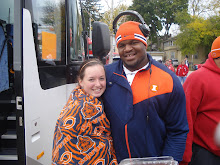The sources I've found so far:
http://www.thesocialedge.com/archives/other/3artsandculture-mar2002.htm
http://web.ebscohost.com/ehost/pdf?vid=4&hid=117&sid=118f1471-7fcf-4895-8e9f-a5921835f984%40sessionmgr104
http://search.atlaonline.com/pls/eli/ashow?aid=ATLA0001459527
http://web.ebscohost.com/ehost/detail?vid=4&hid=117&sid=118f1471-7fcf-4895-8e9f-a5921835f984%40sessionmgr104
http://search.atlaonline.com/pls/eli/ashow?aid=ATLA0000870481&offset=5&lcookie=3285493
Not all of the links work for some reason, so I printed all of the articles off. All 5 of them look interesting at a glance. I'm not sure which ones I'm going to use for sure, and I might search for more depending on how these work out.
Summary of "The December dilemma"
In the article, "The December dilemma" Deborah J. Levine discusses the issue of religion in public schools, specifically during the month of December. Levine tells us that superintendents and principals in DuPage County gathered in a courtroom together as they waited for an update on the legal status of observing holidays in public schools. She uses the example of DuPage County as a model for what is happening across the United States. Levine argues that many non-Christians are offended during the Christmas season because they feel their religion is under-represented, especially when compared to the way in which Christianity is represented. Levine explains that it is a hard subject to deal with because there is no possible way to please everyone. One suggestion is to completely take religion out of schools, but this would leave students under-educated about religion which is a very important part of American culture. As Levine herself puts it, "Not to teach students about religion would leave them unprepared for a world in which religion and religious diversity will play an increasing role." Another proposal is to celebrate all the major holidays of all religions. This is unrealistic, though, because teachers do not have the time or knowledge to celebrate and educated students about all of the holidays that would need to be celebrated. Levine suggests teachers “need materials that fit into the existing curriculum and do not single out holidays, materials that would not only give an historical overview of world religions but provide information about contemporary customs, confirmed by the religious communities among us.” By this she means teachers should not have to deal with religious diversity on their own. In sum, Levine’s view is that there is no possible way to please everyone when it comes to the celebration of holidays in public schools, but teachers should be provided with materials which help them educate the children about the diversity of culture and religion.
Monday, October 1, 2007
Subscribe to:
Post Comments (Atom)

No comments:
Post a Comment